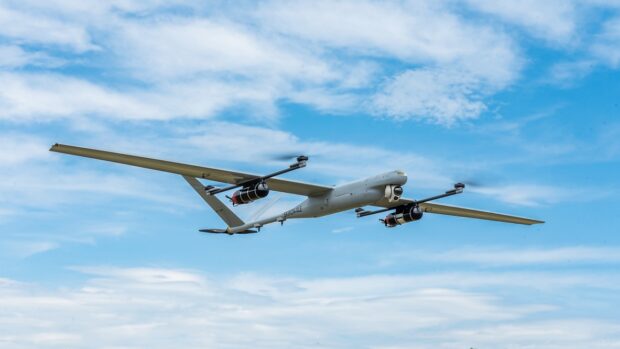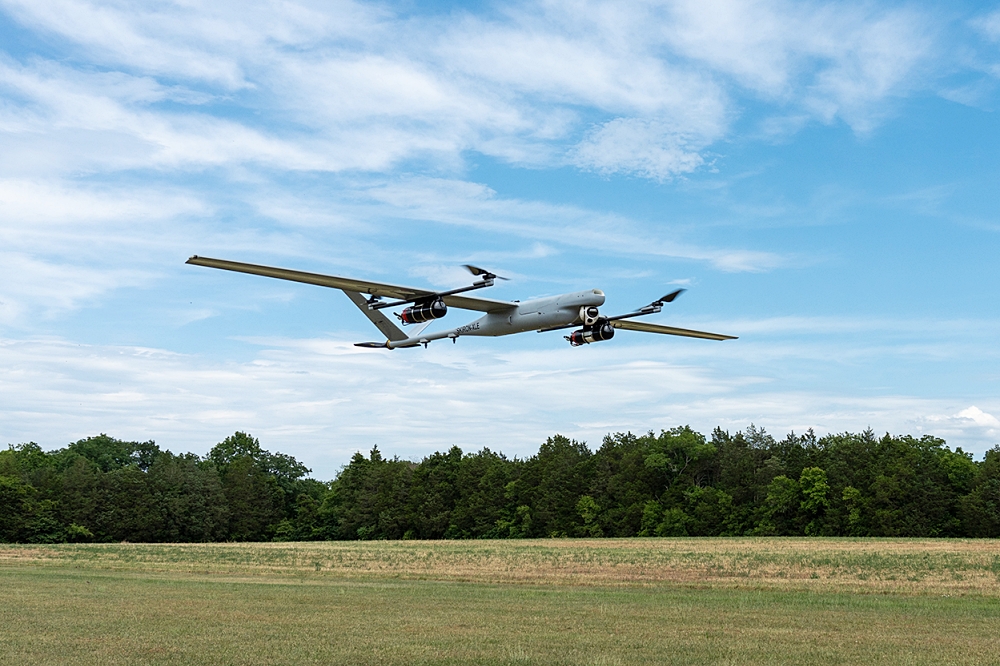Boeing company Aurora Flight Sciences recently completed a successful seven-hour flight test of its fuel-cell-powered small uncrewed aircraft system (sUAS), SKIRON-XLE. The test flight, conducted at an airfield in Virginia, represents a significant advancement in flight endurance for the Group 2 platform.
SKIRON-XLE is part of Aurora’s SKIRON sUAS product line, which also includes the battery-powered SKIRON-X with 3.5-hour flight endurance. SKIRON is a hybrid eVTOL platform, combining electric vertical take-off and landing with fixed-wing forward flight. It is compliant with U.S. FAA Part 107 regulations for sUAS operations, and it is BVLOS-ready.
For the seven-hour flight, the SKIRON-XLE system included two five-liter hydrogen tanks, an Intelligent Energy fuel cell, a Trillium HD45 EO/IR camera payload, and a Lithium Polymer (LiPo) auxiliary battery. Take-off weight was 54 pounds. Completing the flight test, SKIRON-XLE landed at 7.0 hours with its hydrogen fuel tanks depleted and ample safety margin remaining on the battery.
“With this latest flight test, we’ve shown that SKIRON-XLE unlocks the longer flight times that customers are looking for while still being easy to deploy and easy to operate,” said Jason Grzywna, senior director of products at Aurora Flight Sciences. “SKIRON-XLE is a testament to Aurora’s capabilities as an innovator and integrator of advanced flight technologies. We look forward to delivering this game-changing product to customers in early 2025”
Aurora first announced the forthcoming SKIRON-XLE, purpose-designed for long range reconnaissance, in June 2024. The vehicle has up to three payload mounting locations — nose, belly and under-wing — and custom payload integration is available. Its ruggedized ground control station features Kutta Technologies’ Unified Ground Control Station (UGCS) software, and a 2.4G 10W radio and tracking antenna provides up to 75 km command and control (C2) link range.
Source: Aurora Flight Sciences


